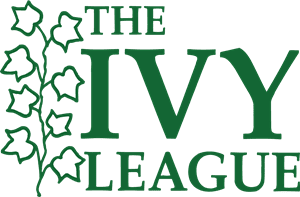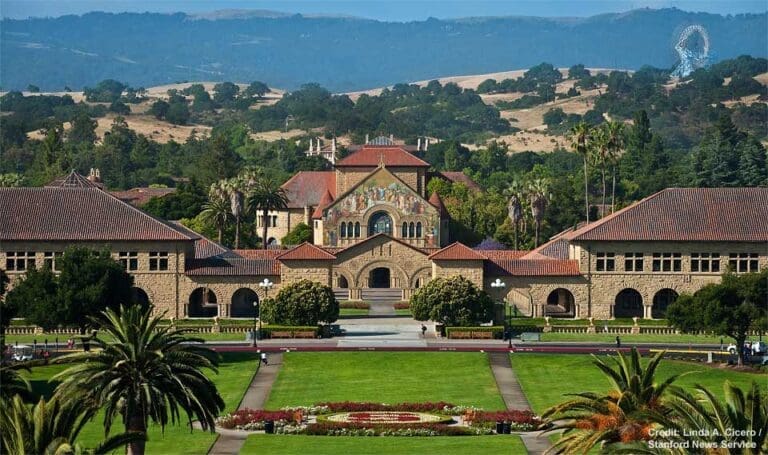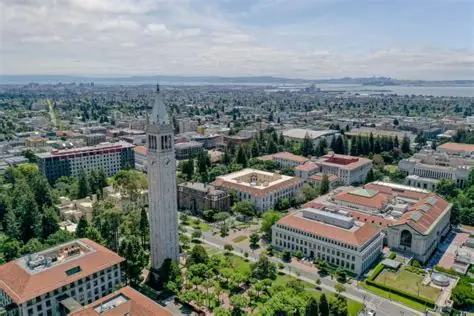
The Ivy League Universities in 2025
When you hear “Ivy League Schools,” what comes to mind? For many, it’s a mix of academic brilliance, tradition, and unmatched prestige. But what exactly does it mean to be part of the Ivy League? Let’s dive into what makes these institutions stand out in 2025—their history, their unique offerings, their specialized programs, and why they continue to captivate the world.
What is the Ivy League?
The Ivy League refers to eight private universities in the northeastern United States, originally grouped for their athletic league in 1954. Over time, the term has evolved to represent elite education, rigorous academics, and storied traditions.
Here are the Ivy League schools:
- Brown University (Providence, Rhode Island)
- Columbia University (New York City, New York)
- Cornell University (Ithaca, New York)
- Dartmouth College (Hanover, New Hampshire)
- Harvard University (Cambridge, Massachusetts)
- University of Pennsylvania (Penn) (Philadelphia, Pennsylvania)
- Princeton University (Princeton, New Jersey)
- Yale University (New Haven, Connecticut)
These schools are recognized for their demanding academics, selectivity, influential alumni, and significant contributions to various fields globally. Want to understand the reality of applying to all eight Ivy League schools? Read Misconceptions About Applying to All 8 Ivy League Colleges.
A Brief History of the Ivy League
Most Ivy League schools trace their roots to colonial America. Seven were founded before the American Revolution, with Harvard being the oldest, established in 1636. The term “Ivy League” is said to come from the ivy-covered buildings adorning their campuses.
The official Ivy League athletic conference was formed in 1954, prioritizing both academic excellence and athletic integrity. Over time, the schools’ reputations for high standards in education and exclusivity became firmly established.
What Makes Ivy League Universities Special?
While each school has its distinct personality, certain traits tie them together:
- Unmatched Academics Professors include Nobel laureates, Pulitzer Prize winners, and experts shaping global discourse. Students are encouraged to push intellectual boundaries and make meaningful contributions.
- Highly Selective Admissions
Acceptance rates are notoriously low. In 2025, graduation rates range from about 3.5% at Harvard to 9% at Cornell. Applications are assessed holistically, considering academics, extracurriculars, essays, and interviews. Explore trends in Ivy League acceptance rates in Analysis of Acceptance Rates: 2020-2024.
- Financial Aid for Accessibility Despite high tuition, these schools offer generous financial aid. Many have need-blind policies, ensuring that financial need does not hinder admission. For families earning under $75,000 annually, full tuition, room, and board are often covered.
- Global Networks Graduates join a worldwide network of accomplished individuals across industries, creating career opportunities and lifelong connections.
- Stunning Campuses The picturesque architecture, lush greenery, and cutting-edge facilities make Ivy League campuses inspiring places to study and live.
Founding Dates and Notable Alumni of Ivy League Schools
Here’s a closer look at the history and alumni of each Ivy League university:
1. Harvard University
- Founded: 1636
- Notable Alumni: John F. Kennedy, Barack Obama, Bill Gates, Natalie Portman
- Specializations:
- Law and Public Policy: Harvard Law School is a world leader.
- Business: The Harvard Business School MBA program is globally renowned.
- Medicine: Harvard Medical School is a hub for groundbreaking research.
- Liberal Arts: Harvard’s undergraduate programs emphasize critical thinking and interdisciplinary studies.
- Unique Programs: Data Science, Genomics, and Advanced Artificial Intelligence Research.
2. Yale University
- Founded: 1701
- Notable Alumni: George H.W. Bush, Meryl Streep, Hillary Clinton, Anderson Cooper
- Specializations:
- Arts and Drama: The Yale School of Drama is one of the best globally.
- Political Science and Law: Yale Law School shapes many leaders.
- Environmental Science: Cutting-edge programs in sustainability and climate studies.
- Music: The Yale School of Music is highly selective and prestigious.
- Unique Programs: Global Health Studies and Ethics, Politics, and Economics.
3. Princeton University
- Founded: 1746
- Notable Alumni: Michelle Obama, Jeff Bezos, James Madison, F. Scott Fitzgerald
- Specializations:
- Mathematics: A top choice for theoretical and applied math.
- Physics: Known for contributions to quantum mechanics and astrophysics.
- Public Policy: Princeton’s Woodrow Wilson School is a leader in public affairs.
- Engineering: Strong focus on interdisciplinary engineering research.
- Unique Programs: Neuroscience and Computational Biology.
4. Columbia University
- Founded: 1754
- Notable Alumni: Alexander Hamilton, Ruth Bader Ginsburg, Warren Buffett, Amelia Earhart
- Specializations:
- Journalism: Home to the Pulitzer Prizes and the Columbia School of Journalism.
- Architecture: Leading programs in urban design and architecture.
- International Affairs: The School of International and Public Affairs (SIPA) prepares global leaders.
- Business: Columbia Business School excels in finance and entrepreneurship.
- Unique Programs: Film Studies and Artificial Intelligence in Urban Development.
5. University of Pennsylvania (Penn)
- Founded: 1740
- Notable Alumni: Elon Musk, Donald Trump, Noam Chomsky, Sundar Pichai
- Specializations:
- Business: Wharton School is the top business school globally.
- Healthcare: The Perelman School of Medicine focuses on cutting-edge research.
- Technology: Integrated programs in computer science and business.
- Economics: Renowned for its empirical and theoretical research.
- Unique Programs: Behavioral Economics and Robotics.
6. Brown University
- Founded: 1764
- Notable Alumni: Emma Watson, John F. Kennedy Jr., Laura Linney, Janet Yellen
- Specializations:
- Open Curriculum: Encourages self-designed majors across disciplines.
- Creative Writing: Notable for fostering literary talent.
- Public Health: Growing programs in epidemiology and global health.
- Cognitive Science: A leader in interdisciplinary brain research.
- Unique Programs: Immersive Design and Computational Neuroscience.
7. Dartmouth College
- Founded: 1769
- Notable Alumni: Robert Frost, Mindy Kaling, Nelson Rockefeller, Jake Tapper
- Specializations:
- Liberal Arts: Emphasizes a well-rounded education with small classes.
- Environmental Studies: Focus on sustainability and rural development.
- Engineering: The Thayer School of Engineering combines innovation with entrepreneurship.
- Government Studies: Prepares leaders in public service and international relations.
- Unique Programs: Arctic Studies and Global Security Studies.
8. Cornell University
- Founded: 1865
- Notable Alumni: Toni Morrison, Bill Nye, Ruth Bader Ginsburg, Anthony Fauci
- Specializations:
- Agriculture and Life Sciences: A leader in sustainability and food systems.
- Hotel Administration: The Nolan School is the best in hospitality management.
- Veterinary Medicine: Top-ranked program in animal sciences.
- Engineering: Robust programs in aerospace and computer engineering.
- Unique Programs: Food Science Innovation and Urban Ecology.
Why Choose an Ivy League School?
These institutions offer more than prestige. Students benefit from:
- Resources: World-class labs, libraries, and funding for research and projects.
- Holistic Development: Opportunities in arts, sports, and student organizations ensure personal growth.
- Global Recognition: An Ivy League degree carries weight worldwide.
- Tradition and Legacy: Joining a centuries-old institution connects you to history and cultural heritage.
Challenges of Ivy League Schools
While appealing, Ivy League schools face valid criticisms:
- Pressure: The high stakes of admission and academic life can lead to stress.
- Cost: Even with aid, the financial burden may deter some families.
- Perceived Elitism: Critics point to disparities in access and representation.
- Exclusivity: Despite efforts to diversify, inclusivity remains a challenge.
How to Apply to Ivy League Schools in 2025
The application process can be daunting. Here are key steps:
- Research: Dive deep into each school’s offerings and culture.
- Tests: While test-optional policies are common, strong SAT/ACT scores can help. Explore trends in Ivy League acceptance rates in Analysis of Acceptance Rates: 2020-2024.
- Extracurriculars: Highlight leadership and impact outside the classroom.
- Essays: Write thoughtful, authentic essays that showcase your personality. For essay tips, see Eight Tips on Getting Accepted by an Ivy League College.
- Recommendations: Choose recommenders who know you well.
- Meet Deadlines: Stay organized with early and regular decision timelines.
What’s Next for the Ivy League?
In 2025, these schools continue evolving. They emphasize diversity, sustainability, and technology to stay relevant in a fast-changing world. Their mission to nurture future leaders ensures their enduring appeal. Curious about what happens behind the scenes after you submit your application? Read The Journey of Your College Application.
The Ivy League is more than a group of schools; it’s an idea—a commitment to excellence, tradition, and impact. With specialized programs that cater to diverse interests, these universities offer students a chance to excel in almost any field. While attending one is a dream for many, it’s important to remember that success is achievable at countless institutions. Find the place that fits your goals, and you’ll be on the path to a fulfilling journey.
Admission and Student Life
Admission to Ivy League schools is notoriously competitive, with acceptance rates often below 10%. The selection process looks for a blend of academic excellence, extracurricular involvement, leadership, diversity, and potential for future impact. This competitiveness has led to a culture where students often start preparing for applications from middle school.
Student life at these institutions is rich with tradition and community. From Harvard’s Hasty Pudding theatricals to Yale’s Whiffenpoofs, from Princeton’s eating clubs to Penn’s Mask and Wig, each school has unique cultural touchstones that foster a deep connection among students.
Economic Impact and Global Influence
The Ivy League’s influence extends far beyond academia. Economically, these institutions contribute billions to their local economies through employment, tourism, and startup incubations. Alumni networks are formidable, often spanning across fields like politics, business, academia, and entertainment.
Challenges and Critiques
-
Accessibility and Equity: The high cost of attendance, even with financial aid, makes these institutions less accessible to students from lower socio-economic backgrounds. Efforts like Harvard’s and Princeton’s no-loan policies aim to mitigate this, but the debate on true accessibility continues.
-
Elitism: The perception of elitism and exclusivity can alienate broader society, with critics arguing that these schools perpetuate a class divide.
-
Diversity: While there has been significant improvement in racial and ethnic diversity, there’s ongoing debate over socio-economic diversity, geographic diversity, and representation in both faculty and student bodies.
-
Impact on Education Culture: The focus on getting into an Ivy can skew educational priorities, leading to stress, strategic gaming of the admissions process, and a sometimes narrow focus on what constitutes success.
The Future of the Ivy League
-
Adaptation to Technological Advances: Integrating AI, online learning, and new educational technologies while maintaining the essence of their educational mission.
-
Sustainability: Addressing climate change and sustainability in campus operations and curriculum.
-
Global Competition: As other global institutions rise in prestige, Ivies must maintain their allure and relevance.
-
Inclusivity: Continual work towards not just increasing diversity but ensuring inclusivity where all students feel they belong and can thrive.
-
Innovation in Education: Balancing tradition with innovative pedagogies to prepare students for an ever-changing world.
A Deep Dive into Ivy League Admissions
General Admission Criteria
-
Academic Performance:
-
GPA: A high GPA in challenging courses is crucial. Schools look for students who have taken the most rigorous curriculum available, often Advanced Placement (AP), International Baccalaureate (IB), or honors classes.
-
Class Rank: Where applicable, being in the top percentile of your class is advantageous.
-
Standardized Tests: While many Ivies have gone test-optional or test-flexible, strong scores on the SAT or ACT can still bolster an application. Subject tests might also be considered if submitted.
-
-
Extracurricular Involvement:
-
Breadth and Depth: Schools seek students who show both a variety of interests and significant commitment to a few activities. Leadership roles, initiative in founding clubs or projects, and long-term commitment are highly valued.
-
Impact: Demonstrating how you’ve made a tangible impact in your community or field of interest can set you apart.
-
-
Personal Qualities:
-
Essays: The personal statement and supplemental essays are critical in conveying your personality, intellectual curiosity, resilience, and unique voice. They should tell a story that doesn’t repeat your resume but adds depth to your character.
-
Recommendations: Letters from teachers or counselors who can speak to your intellectual vitality, personal qualities, and growth are influential.
-
-
Interviews: Where offered, interviews provide an opportunity to show interpersonal skills and passion for the institution. They vary from informational to evaluative but are always a chance to make a personal impression.
-
Diversity and Context:
-
Geographic and Socioeconomic Diversity: Schools aim for a diverse class, considering factors like where you’re from, your school’s resources, and your socio-economic background.
-
Unique Talents or Experiences: Whether it’s being a first-generation college student, overcoming significant adversity, or having unique cultural or professional experiences, these add to the tapestry of the class.
-
-
Legacy and Connections: While not a guarantee, having family who attended or affiliations with donors or alumni can be a slight advantage, though policies vary on how much this is weighed.
-
Early Decision vs. Regular Decision: Many Ivies offer an Early Decision (ED) option, requiring a commitment to attend if accepted. This can be advantageous for candidates with a clear first choice but limits options. Regular Decision (RD) allows for multiple applications without commitment.
-
Application Platforms: Most use the Common Application, but some require additional supplements or have their own systems (like Yale with its Yale-specific questions).
-
Financial Aid Application: For those needing financial support, applying for aid is crucial. Ivy League schools meet 100% of demonstrated need without loans in many cases, but this requires separate applications like the CSS Profile.
-
Demonstrated Interest: Some schools track how much you engage with them through campus visits, emails, attending information sessions, etc.
-
Low Acceptance Rates: Acceptance rates are typically under 10%, with some like Harvard and Yale dipping below 5%. This context underscores the competition.
-
Holistic Review: No single factor decides admission; it’s an ensemble evaluation where every element of your application contributes to a narrative about who you are and what you’ll bring to campus.
-
Strategic Applications: Students often apply to multiple Ivies to increase chances, but each application should be tailored to reflect genuine interest in the school.
-
Waitlists: Being waitlisted isn’t a rejection but indicates you’re competitive; however, moving off the waitlist is unpredictable and depends on yield from accepted students.
-
Stress and Pressure: The process can be incredibly stressful, with many students feeling the weight of expectations or the fear of not measuring up.
-
Equity: There’s ongoing debate about how truly meritocratic the process is, with critics pointing to advantages for wealthier or legacy students.
-
Adaptation: Post-COVID, there’s been a shift in how applications are viewed, with more emphasis on personal stories, resilience, and less on traditional metrics like test scores.
-
Transparency: Some schools have moved towards greater transparency about what they look for in applicants, though the process remains somewhat opaque due to the complexity of human judgment.
-
Innovations: There are discussions around AI in admissions, diversity in admissions practices, and how to maintain or increase accessibility amidst rising costs and competition.









